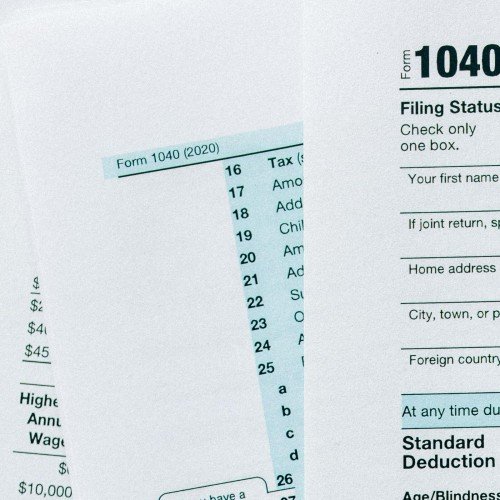
Whether for personal, legal, or professional purposes, accurate and certified translations ensure that your documents are not only understood but also legally recognized in their target language. This blog explores the nuances of certified translation services, how they differ from standard translation services, and why they are essential in today’s interconnected landscape.
What Are Certified Translation Services?
Certified translation services provide translated documents accompanied by a certificate of accuracy. This certificate attests that the translation is a true and accurate representation of the original document, often signed and stamped by the translator or the translation agency.
These services are typically required for official purposes, such as immigration, legal proceedings, academic applications, and business transactions. Certified translations are legally valid and accepted by government bodies, academic institutions, and other official organizations.
Unlike general document translation services, certified translations carry an additional layer of assurance, guaranteeing that they meet the standards of the receiving institution.
The Difference Between Certified and Standard Translation Services
At first glance, translation services may seem similar across the board. However, certified translation services come with a unique set of responsibilities and guarantees:
- Legal Validity: Certified translations are legally recognized, making them suitable for court submissions, visa applications, and other official processes.
- Accuracy and Quality Assurance: Certified translations go through rigorous checks to ensure they are error-free, maintaining the integrity of the original document.
- Certification Statement: Unlike standard document translation services, certified translations include an accompanying statement confirming the translator’s qualifications and the document’s accuracy.
For instance, while a standard translation might suffice for internal business communications, a certified translation is mandatory for submitting official documents like birth certificates, contracts, or diplomas to authorities.
When Do You Need Certified Translation Services?
Certified translation services are essential in numerous scenarios, including:
- Immigration: Organizations like USCIS require certified translations for documents such as passports, birth certificates, and marriage licenses.
- Education: Certified translations are often needed for academic transcripts, diplomas, and recommendation letters when applying to foreign institutions.
- Legal Proceedings: Courts and legal systems frequently demand certified translations of evidence, contracts, and other official records.
- Business Expansion: Companies venturing into global markets may need certified translations of business licenses, financial statements, and agreements.
- Medical Records: Certified translations ensure that medical histories and prescriptions are correctly translated for international healthcare purposes.
Choosing the Right Certified Translation Provider
Selecting the right provider for certified translation services is crucial. Here are some factors to consider:
-
Expertise: Look for a provider with extensive experience in certified translation services. Agencies that specialize in your industry, such as legal or medical translations, are ideal. Businesses in London, where translation agencies bridge global communication often rely on such expertise to ensure their documents are accurate and legally recognized.
-
Accreditation: Ensure the provider is recognized by relevant authorities. For example, translators certified by associations like ATA (American Translators Association) or NAATI (National Accreditation Authority for Translators and Interpreters) offer additional credibility.
-
Comprehensive Offerings: Verify that the provider offers both certified and standard document translation services to meet all your needs. Providers in Manchester, known for its trusted translation services offer comprehensive solutions for businesses and individuals alike.
-
Timeliness: Certified translations often come with tight deadlines. Choose a provider known for delivering accurate translations on time.
The Role of Technology in Certified Translation Services
Modern certified translation services leverage advanced tools to enhance efficiency and accuracy:
- Computer-Assisted Translation (CAT) Tools: These tools ensure consistency in terminology, particularly for lengthy or technical documents.
- Secure Online Platforms: Many providers offer secure portals for uploading sensitive documents, safeguarding data privacy.
- AI-Powered Translation with Human Oversight: While AI speeds up the process, human translators ensure cultural accuracy and context-specific nuances are preserved.
Why Certified Translation Services Matter
Accuracy is the cornerstone of certified translation services. An error in a critical document can lead to dire consequences, such as visa rejections, legal disputes, or academic disqualification. Here’s why certified translations matter:
- Global Accessibility: They enable individuals and businesses to navigate international systems with ease.
- Legal Compliance: Certified translations ensure adherence to legal requirements, minimizing risks.
- Credibility: Submitting certified translations reflects professionalism and attention to detail, crucial for businesses and individuals alike.
Additional Benefits of Certified Translation Services
Beyond accuracy and compliance, certified translation services offer:
- Peace of Mind: Knowing your documents meet official standards eliminates stress during high-stakes situations.
- Professional Expertise: Certified translators are not only fluent in the target language but also well-versed in legal, medical, or technical terminology.
- Tailored Solutions: Trusted providers often offer flexible packages to accommodate diverse client needs.
How to Get Started with Certified Translation Services
If you’re new to certified translations, follow these steps:
- Identify Your Needs: Determine which documents require certified translations and understand the specific requirements of the receiving authority.
- Research Providers: Shortlist providers based on their expertise, reviews, and language offerings.
- Submit Your Documents: Upload or share your original documents securely. Many providers offer digital submission for convenience.
- Review and Approve: Before finalizing, review the translated document for accuracy, especially for names, dates, and other critical details.
Final Thoughts
Certified translation services are an indispensable resource for individuals and businesses navigating international landscapes. They provide the accuracy, legal validity, and professionalism required to ensure your documents are accepted and respected globally. By partnering with a reputable translation service provider, you can confidently tackle linguistic and cultural barriers, enabling seamless communication and compliance.
Whether you need certified translations for immigration, education, or business purposes, investing in quality document translation services is the key to success. Embrace the power of certified translation services and take the first step toward global connectivity today.








